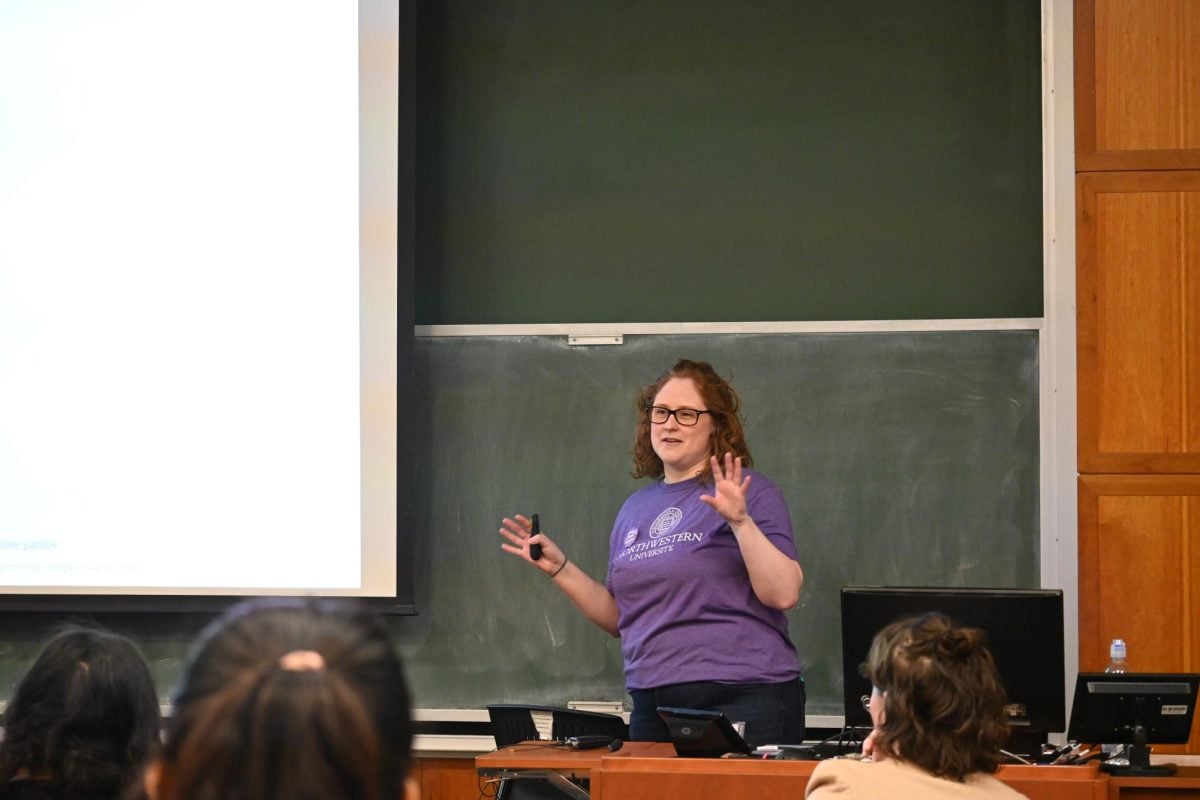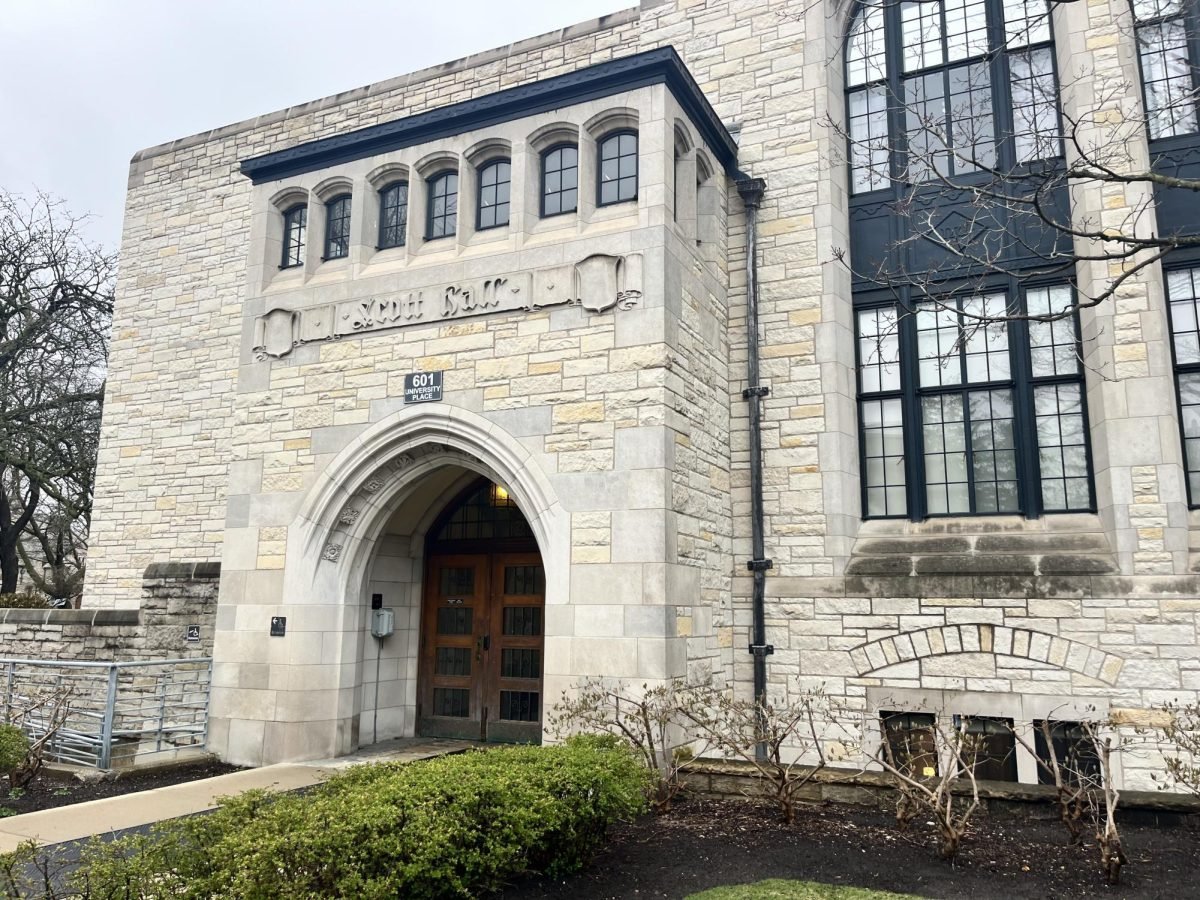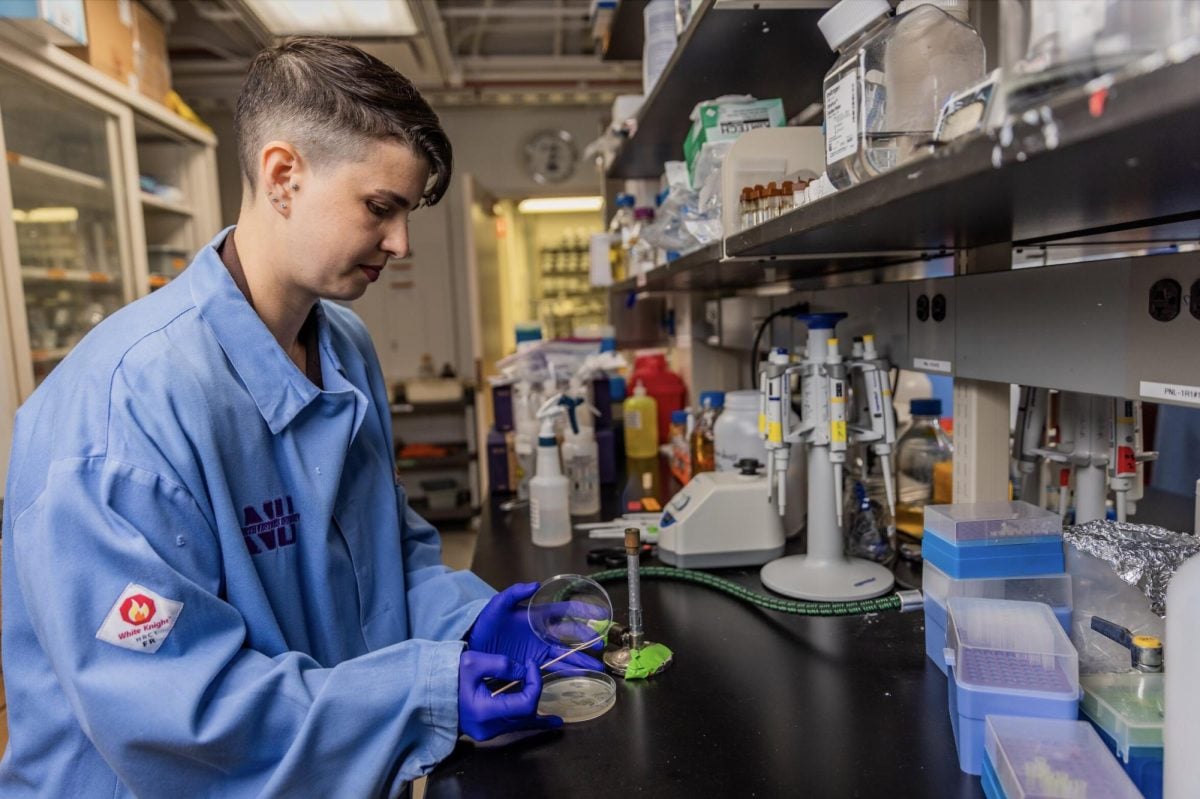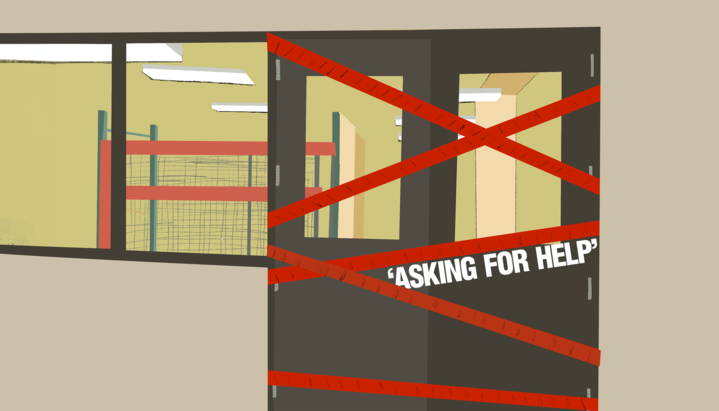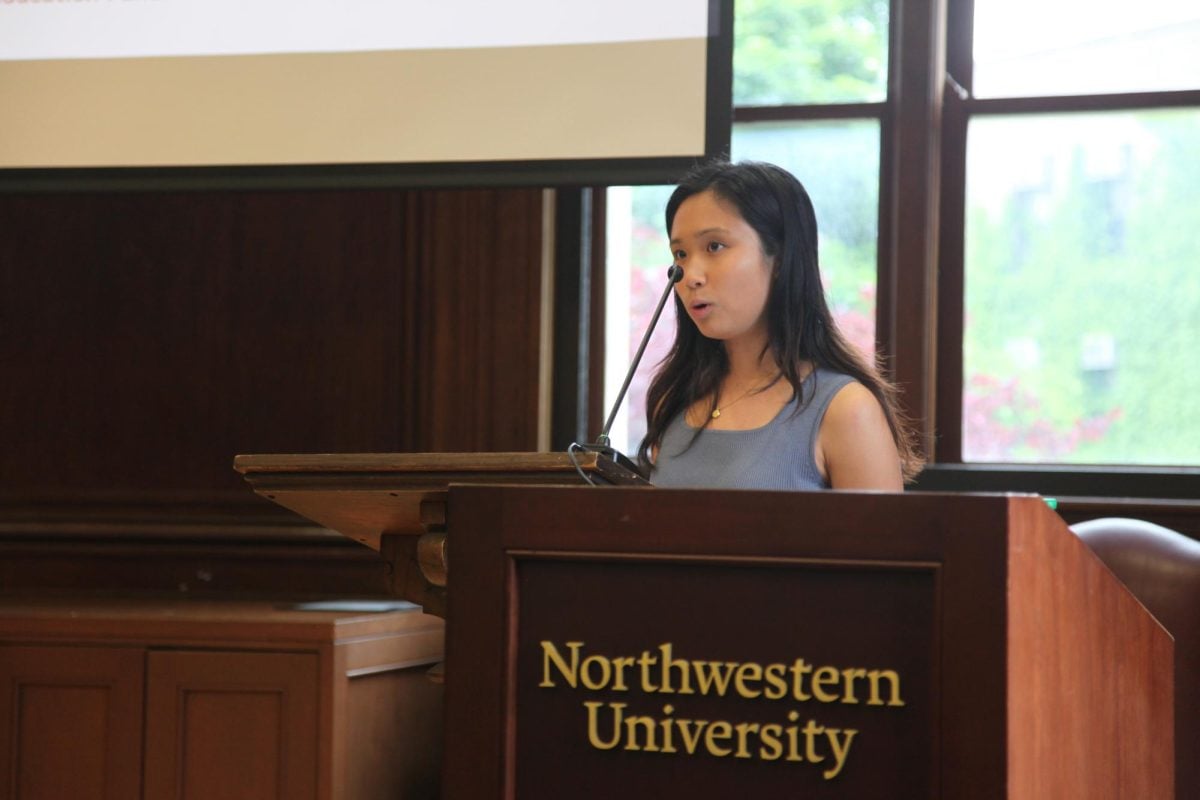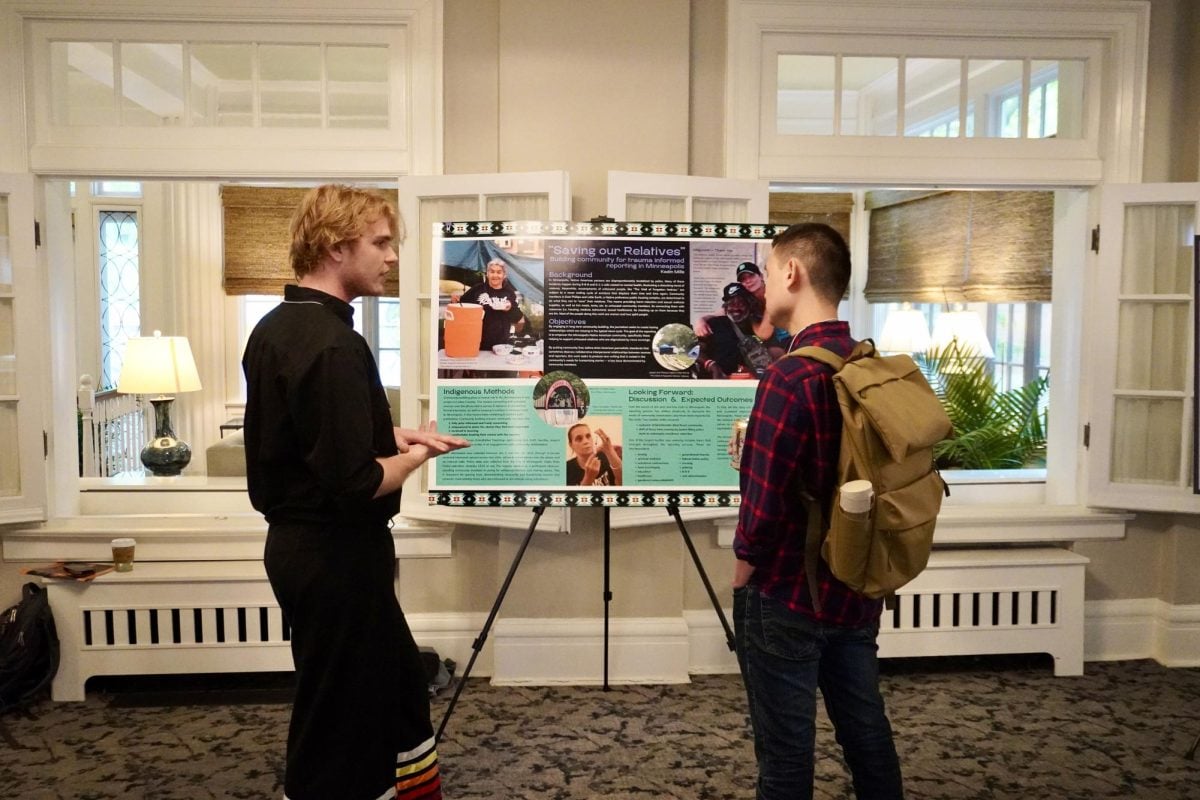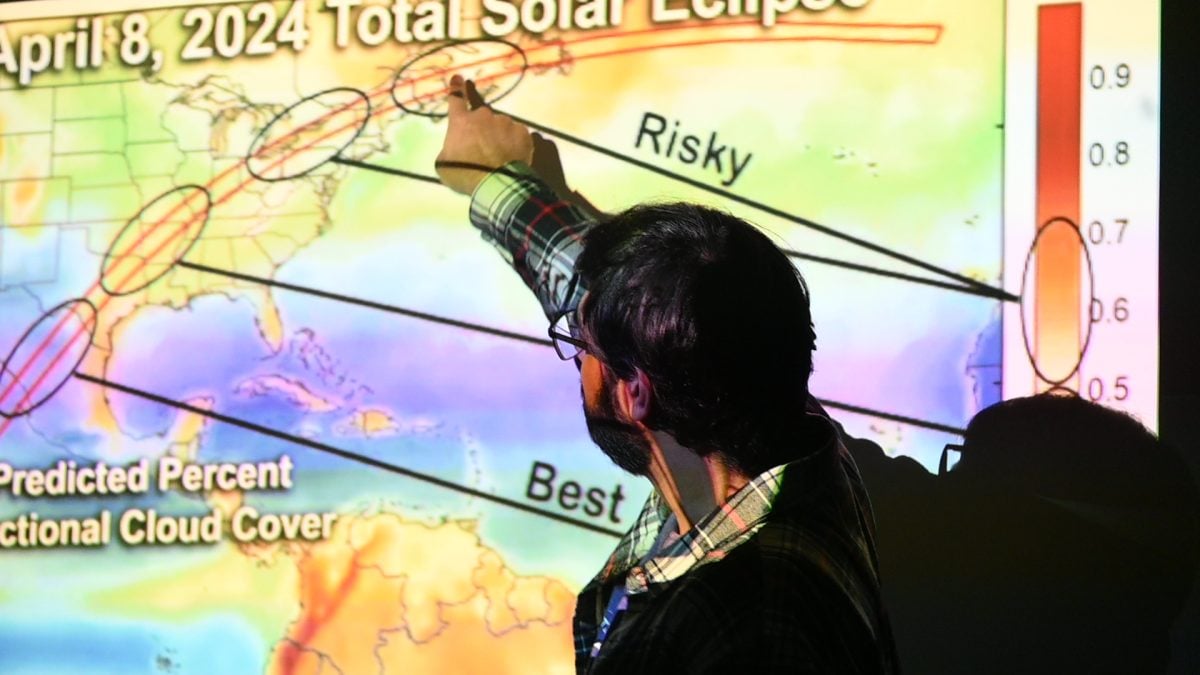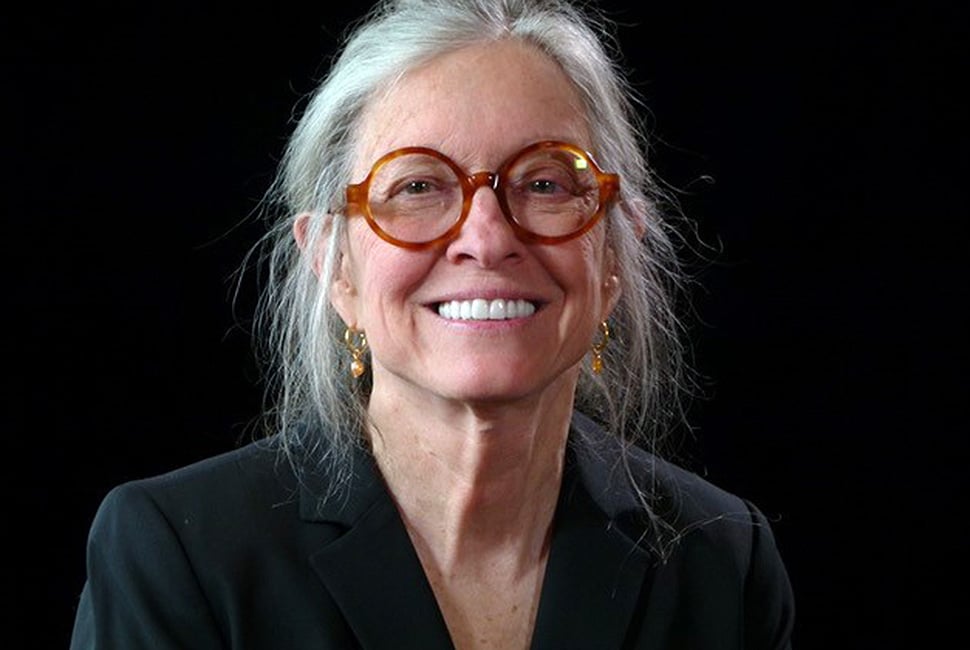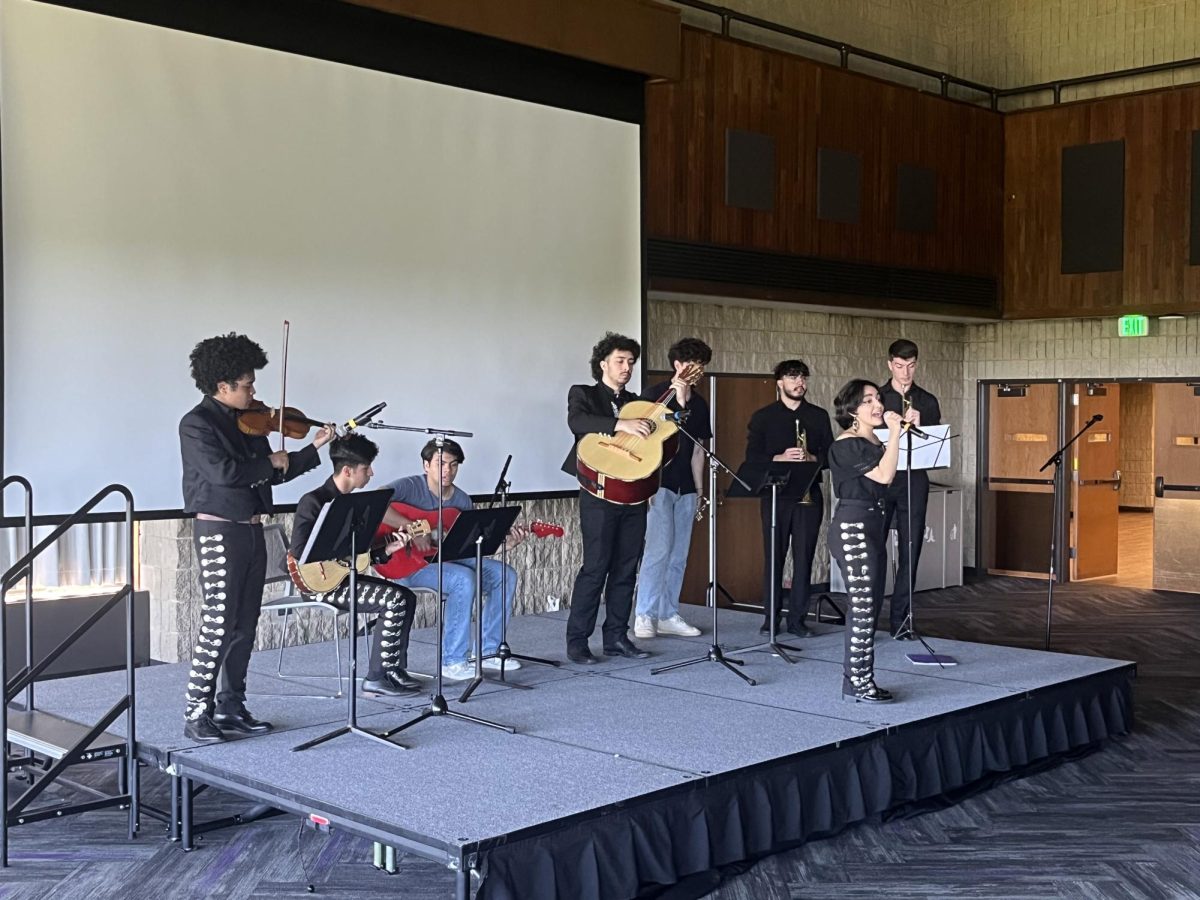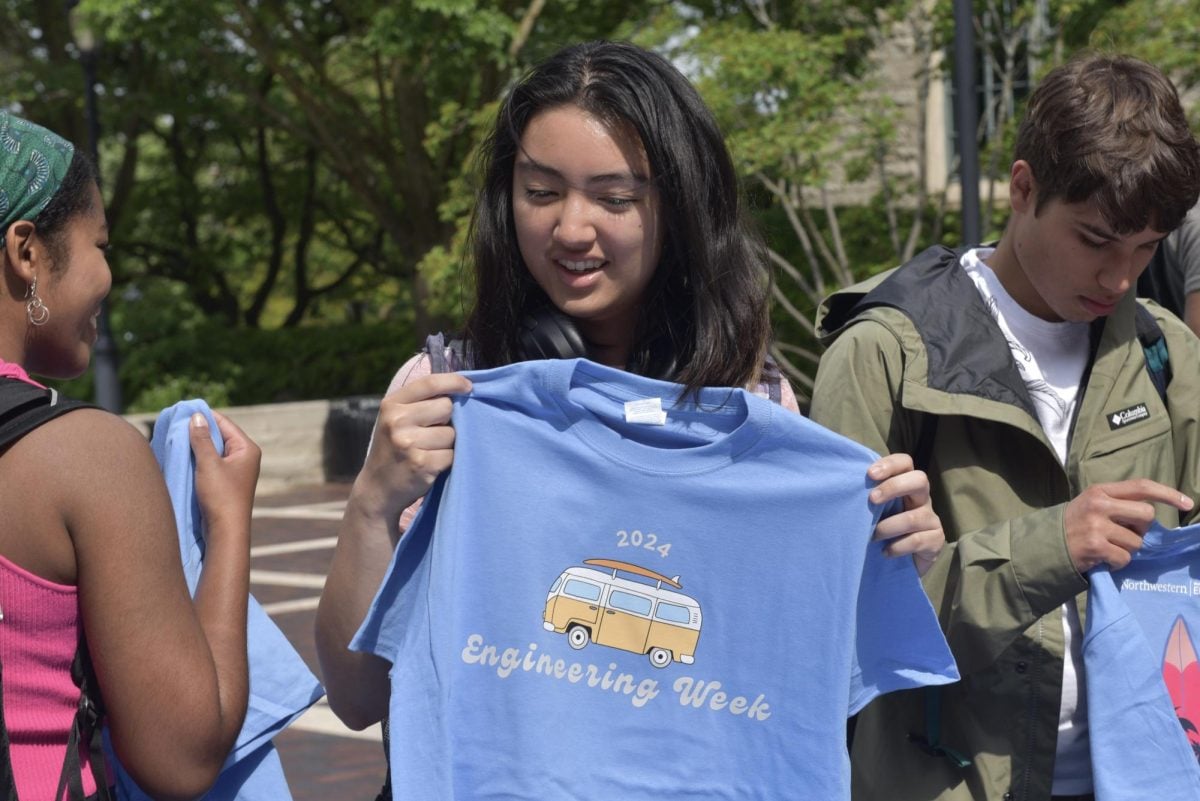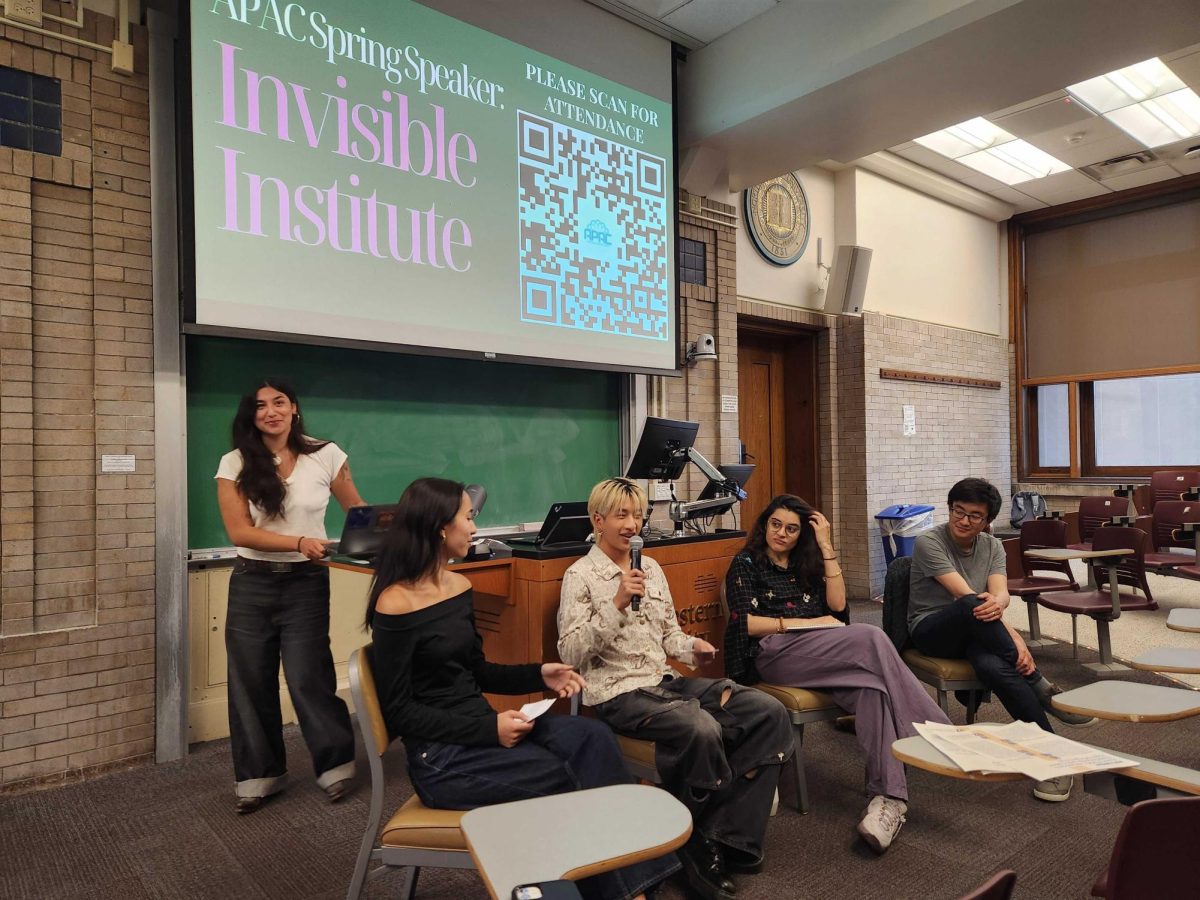Center for Awareness, Response and Education hosted two-time Northwestern graduate Lisa Battisfore (Weinberg ’08, Kellogg ’15), founder and president of Reproductive Transparency Now, to discuss anti-abortion crisis pregnancy centers on Monday in Annenberg Hall.
The event was a part of CARE’s Sexual Assault Action Month campaign in collaboration with NU Physicians for Human Rights and Sexual Health and Assault Peer Educators. The theme for this year’s SAAM, rebranded from Sexual Assault Awareness Month, is “Our Bodies Belong to Us.”
“Reproductive justice and ending sexual violence are strongly tied,” said Assistant Director of Outreach at CARE Katelyn Kennon. “The month is about tying the fact that we can’t really make choices about our bodies without coercion.”
RTN is a Chicago-based volunteer-run organization aiming to raise awareness and action toward reproductive justice, specifically against anti-abortion CPCs, Battisfore said. The organization holds speaker events, provides education resources and arranges protests against CPCs.
At the event, Battisfore addressed the common misinformation surrounding CPCs, signs to spot a center and actions to take against them.
The CPC industry is a billion-dollar industry, with more than $300 million funded by taxes, she said. The industry takes on various names, such as “fake clinics,” anti-abortion centers, pregnancy care centers and maternal wellness centers. Their branding is intentional to mimic medical centers, Battisfore said.
According to Battisfore, CPCs are “completely unregulated” and often advertise free testing and ultrasounds as “part of the tactics to get people to trust them.”
Despite no regulation under the Health Insurance Portability and Accountability Act or practice by licensed providers, CPCs are permitted to operate under freedoms of speech and religion, Battisfore added.
“They have already decided, before you’ve even picked up the phone to call, what’s best for you, and that by very nature is undermining bodily autonomy,” Battisfore said.
During the event, Battisfore showed pamphlets from a Chicago-based CPC, The Women’s Center, that relayed false information.
She said these centers cite from studies that are often flawed to prey “upon people’s fears and people’s anxiety.” For example, based on a mid-1980s study, the pamphlet claimed “women who had abortions were 195% more likely to die in the year following an abortion than women who gave birth.”
“Put yourself in the shoes of someone who’s looking for help and doesn’t know that they’re in an anti-abortion center,” Battisfore said. “This would be sickening. That is going to steer you away from something that may very well be the best choice for you.”
The anti-abortion center is also located next to a Planned Parenthood medical center. Volunteers at the Women’s Care Center often intercept patients going to the medical center, Battisfore said.
There are over 2,500 CPCs in the U.S. and about 100 in Illinois, with a high concentration in Cook County. Battisfore said more will likely appear in Illinois, where abortions remain legal.
Following the 2022 U.S. Supreme Court decision in Dobbs v. Jackson Women’s Health Organization that overturned Roe v. Wade, residents from other states have begun gravitating toward areas like Chicago for legal abortions, which prompts CPCs to locate there to prevent them from their appointments, Battisfore said.
Kennon said crisis pregnancy centers also tend to appear near college campuses. Coming to college with different levels of sexual education, students may be vulnerable to misinformation of CPCs and may seek out abortions to avoid disruptions in their student or work life, Kennon said.
“They are not in their state. They’re not in their area that they’re familiar with. They may not have trusted older adult resources to turn to,” Kennon said. “If they just Google, the first thing that pops up on the search results is this place.”
Battisfore and RTN use social media and hold frequent protests against CPCs because the “only way to prevent people from being harmed is making sure they know it exists.” RTN also provides “Find Fake Clinics,” a working list of crisis pregnancy centers.
Weinberg freshman Sofia Papadopoulos, who attended the event, said she will heed Battisfore’s advice and leave bad reviews on CPC pages online to spread awareness.
“It’s very obviously preying on POC people and people from marginalized communities who are going to be really easily exploited,” Papadopoulos said.
Correction: A previous version of this article incorrectly named the crisis pregnancy center whose pamphlets were distributed during the event. The Daily regrets the error.
Email: [email protected]
X: @kelleylu_
Related Stories:
— ‘We can win this battle:’ Evanston residents, politicians rally for abortion rights











